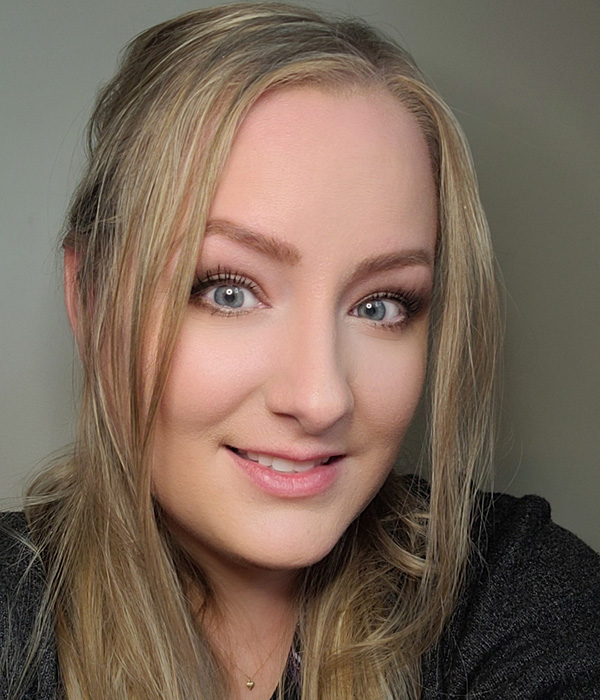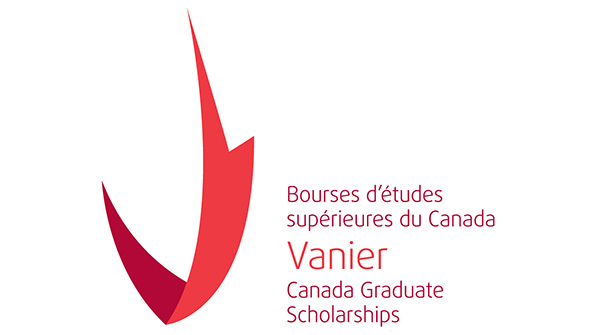 About being a Vanier Scholar
About being a Vanier Scholar
What does receiving a Vanier Scholarship mean to you?
Receiving a Vanier Scholarship holds tremendous significance and personal value to me. This prestigious award is recognized for its commitment to supporting exceptional doctoral students who exhibit outstanding achievements. The Vanier Scholarship represents a recognition of the hard work and effort I have invested in my academic and professional pursuits, and acknowledges my capacity for leadership, as well as my ability to contribute positively to my research community and society at large. It will provide me with opportunities to engage with fellow scholars, mentors, and experts, fostering collaborations and networks that could have a lasting impact on my career trajectory.
The recognition associated with this award will enhance my academic and professional reputation, opening doors to further opportunities such as additional funding, grants, fellowships, and potential employment prospects. It serves as a testament to my commitment to research excellence and significantly contributes to my future career advancement. I am so grateful and privileged to be a Vanier Scholarship recipient.
Tell us about your Vanier research.
Colonialism led to significant social inequities that questioned rights, freedoms, and cultural identity. The assimilation experienced by Indigenous people closely paralleled the normalization and eugenic practices imposed on disabled individuals. As a result, Indigenous disabled individuals are faced with the challenge of navigating a world that constantly scrutinizes their cultural and abilities. Both Indigenous and disabled communities are diverse and multifaceted, further complicated by the intersectionality of their marginalized identities. It is essential to acknowledge that disability is a socially constructed concept rooted in colonialism, disregarding relational epistemologies that recognize the interconnected and reciprocal relationships shaping Indigenous knowledge. As such, imposing the label of disability on Indigenous individuals perpetuates colonial processes, exacerbating and perpetuating ongoing disablement. The proposed research seeks to describe and share Indigenous perceptions of disability in the context of Inuit culture.
The qualitative study will utilize the Pilirqatigiinniq Research Model, which calls attention to traditional ways of knowing and the research approaches that grow from an Indigenous worldview, emphasizing relational epistemology and decision-making through consensus. The study will also incorporate Inuit epistemology known as Inuit Qaujimajatuqangit (IQ). IQ includes cultural beliefs and values that promote balance and harmony, and is based on a constant cycle of knowing, improving and evaluating to support cultural grounding .
About graduate student life
What inspired you to pursue a postgraduate degree?
There are several factors that inspired me to pursue a postgraduate degree. Firstly, my passion for social justice and the desire to deepen my understanding and expertise in research have been significant motivating factors. Specifically, having the opportunity to engage in independent research and contribute to the existing body of knowledge within my chosen field has been a driving force. I am eager to make meaningful contributions to the academic community and society as a whole, and a postgraduate degree provides the ideal platform for me to do so. I also want to amplify the voices of marginalized people, and have a deep interest in community-based and participatory research.
Why did you choose to study at McMaster?
I chose to study at McMaster for several compelling reasons. Firstly, McMaster University is renowned for its academic excellence and research-intensive environment. It has a strong reputation in my field of interest, providing access to resources and a vibrant scholarly community. The university’s commitment to innovation, interdisciplinary collaboration, and experiential learning aligns perfectly with my academic and career aspirations. Further, McMaster’s social work faculty members are widely recognized for their expertise and contributions to their respective fields. The opportunity to learn from and collaborate with these distinguished scholars was a significant draw for me. Their mentorship and guidance have not only enhanced my knowledge but also opened doors to opportunities and professional networks. Additionally, McMaster’s inclusive and diverse campus greatly appealed to me. The university values inclusivity, equity, and social responsibility, fostering an environment where diverse perspectives are celebrated and respected. This promotes a rich and dynamic learning experience, encouraging cross-cultural understanding and collaboration which is critical for the work that I am doing to amplify the voices of marginalized people.
What do you love most about your graduate program?
One of the aspects I love most about my graduate program is the exceptional faculty and the vibrant cohort of peers I have the privilege to learn alongside. The faculty members in my program are distinguished scholars and experts in their respective fields. Their deep knowledge, passion for research, and commitment to teaching create an intellectually stimulating environment. They provide invaluable guidance, mentorship, and support, fostering my academic and professional growth. Further, the diverse cohort of peers in my program enriches the learning experience. Interacting with my fellow graduate peers from different backgrounds, cultures, and areas of expertise has broadened my perspective and enhanced my understanding of so many topics. Engaging in discussions and exchanging ideas with such a strong diverse group of individuals has fostered a close relationship amongst our group that will last well past our graduate studies. I absolutely love my cohort! And finally, the collaborative nature of the program is another aspect I cherish. The emphasis on teamwork and collaboration allows us to leverage our collective strengths and expertise. This collaborative approach not only enhances the learning outcomes but also fosters a sense of camaraderie and support among peers. We inspire and challenge each other, pushing the boundaries of our knowledge and capabilities.
What is your favourite thing about McMaster and the broader Hamilton community?
McMaster has a strong academic reputation and commitment to research excellence. The university is known for its innovative programs, distinguished faculty, and state-of-the-art facilities, which provide students with a high-quality education and opportunities for intellectual growth. In terms of living in Hamilton, Ontario, I appreciate the city’s vibrant arts and culture scene. Hamilton offers a diverse range of cultural events, festivals, art galleries, and live performances, providing ample opportunities for entertainment and enrichment. I also appreciate the child-friendly community and lots of events geared towards children. Hamilton has a lot of natural beauty and proximity to outdoor recreational areas, such as the Niagara Escarpment and the nearby Bruce Trail. Hamilton has a lot of green space, which is very important to me.
When you’re not busy being a graduate student, how do you like to spend your free time?
In my free time, I prioritize spending time with my husband and our energetic three-year-old twins. Being a parent is a joyous and fulfilling role, and I cherish the precious moments we share together as a family. Aside from my family commitments, I am also passionate about my role as an executive director of the only cross-disability advocacy organization in Nunavut. This important work allows me to contribute to creating positive change and empowering marginalized and oppressed communities. I devote my time to strategic planning, collaborating with stakeholders, and implementing initiatives that promote inclusivity and enhance the lives of disabled Inuit individuals. Additionally, I am actively involved in local and national community of practice groups, policy forums and am a board member for a number of organizations across Canada. This gives me the opportunity to lend my expertise and contribute to the governance and decision-making processes of organizations that align with my values. By leveraging my skills and experiences, I strive to make a meaningful impact at a broader level, addressing systemic challenges and advancing social justice causes.
Beyond Grad School
What do you see as the next step in your life journey?
After completing graduate school, I envision the next step in my life journey as a continuation of my commitment to both my family and my research pursuits. One of my primary focuses will be on raising and nurturing my family. I deeply value the role of a parent and the joy and responsibility it brings. I will devote time and attention to creating a loving and supportive environment for my loved ones, ensuring their well-being and growth.
Simultaneously, I intend to continue engaging in research and scholarly endeavors. Graduate school has ignited a passion for knowledge creation and exploration within me, and I aspire to build upon that foundation. I envision myself pursuing a career in research, where I can contribute to the advancement of knowledge in my field. In addition to my professional pursuits, I aim to maintain an active involvement in my community and contribute to causes that align with my values. This may involve volunteering, mentoring aspiring researchers or students, or engaging in advocacy efforts related to the areas of my expertise. Making a positive impact beyond academia is a vital part of my life journey, and I will strive to create meaningful change.

